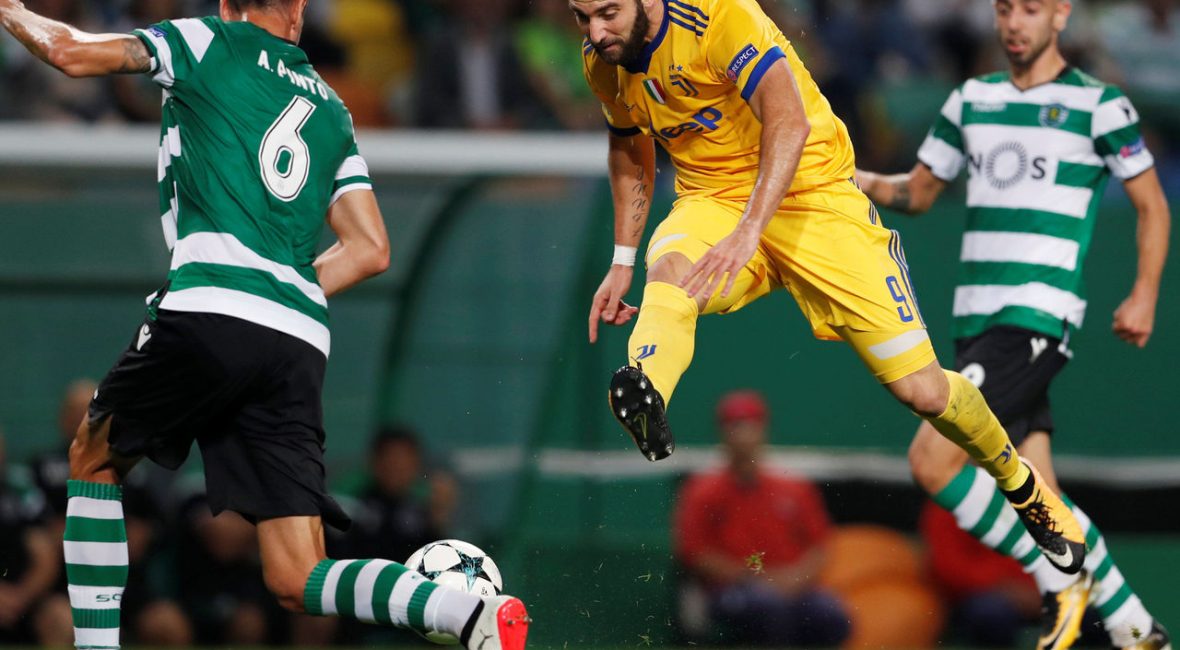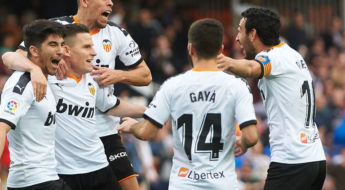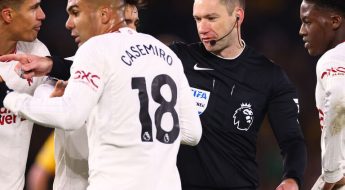Higuain's mid-season revival papering over Juventus' deep cracks

The good thing for Juventus is that Gonzalo Higuain is back to his best.
The bad thing is the rest of the team is at some of its worst.
The Bianconeri have yet to find their rhythm this season. When Paulo Dybala rediscovered his scoring touch at the beginning of the campaign, Higuain fell silent. The opposite was true Tuesday night against Sporting CP, as Higuain salvaged a crucial 1-1 draw in Lisbon despite a relatively anonymous performance by his countryman.
While Higuain’s return to form is something to celebrate – he has four goals in his past three matches after scoring just two in nine – the team’s overall attitude isn’t. Juventus’ once-vaunted defence is shaky, its midfielders encumbered, and its manager inconsistent. The six-time defending Serie A champion has never been more vulnerable to a coup d’etat in league play, and in the Champions League, the pace of continental foes has been overwhelming.
It was certainly important to take something from Tuesday’s match. Juventus is now second in Group D on seven points, three better than Sporting, who could’ve pulled level with the Italian side had it maintained its first-half lead.
But the problem is a lack of continuity. Juventus has depended heavily on pure individual brilliance to escape calamity, and because of the quality in the squad, the likes of Dybala and Higuain have become a crutch.
Neither of them is immune to a slump, and manager Massimiliano Allegri admitted after last week’s scrappy win over SPAL that his club risks turning matches into a “game of roulette.”
He added, “We cannot afford to have these ups and downs.”
Allegri himself is partly to blame. Flip-flopping between last year’s trusted starters and this summer’s recruits, the Italian has yet to use the same 11 players in consecutive matches this season. He’s insisted on playing Mario Mandzukic out of position despite the signing of excitable winger Douglas Costa, and kept on starting Juan Cuadrado despite the €40-million arrival of Federico Bernardeschi. In other words, he’s held back the evolution of this squad.
Allegri’s decision to drop Stephan Lichtsteiner from Juventus’ Champions League squad was arguably his biggest mistake. With Mattia De Sciglio either injured or underperforming, either Stefano Sturaro or Cuadrado have had to deputise as right-backs. Their limitations are obvious. Sturaro isn’t reliable in midfield, let alone in a defensive position, and Cuadrado is too attack-minded to anchor that role. Juventus has become much more predictable without overlapping runs on the right flank, and even Alex Sandro – one of the game’s best left-backs – has struggled to dominate on his side of the pitch.
The biggest worry, however, is in midfield. When Juventus have the ball, there’s little movement. It’s almost as if the players hit a wall. Teams have dealt with their hopeful crosses into the box. The overall build-up play is far too slow, allowing opposing defenders to collect themselves and find their shape.
Juventus’ lack of pace has also created an opening for rivals to exploit. Sporting’s counter-attack troubled Giorgio Chiellini and Co., with Gelson Martins offering a scintillating outlet in both matches against Juventus. Earlier this month, Lazio showed in Turin that speed can kill, swarming the host in a spell of second-half chaos to end a 57-match home unbeaten streak.
“Evidently this team needs to feel fear in order to perform,” Allegri said Tuesday, courtesy of Football Italia.
Juventus’ only saving grace is its scoring power. Only Manchester City and Paris Saint-Germain have ruffled the back of the net more than Juventus in league play – and goals ultimately decide matches. The fear is that Allegri’s side is converting at an unsustainable rate.
Scoring six past Udinese while down to 10 men, for example, is a clear anomaly.
Unless Juventus finds some consistency, it cannot expect to have the same success it enjoyed in previous years. And maybe it’s time to embrace the fact that a transition is coming.





